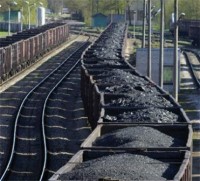Decision shifts attention to Gov. Kitzhaber’s power to protect Oregonians from dirty coal
Despite overwhelming political and public support for thorough investigations into the public health and environmental impacts of coal export, the U.S. Army Corps of Engineers announced its decision to shrink the scope of environmental review for Ambre Energy’s Morrow Pacific Project. The Army Corps’ decision, announced in an August 14, 2013, letter to the National Marine Fisheries Service, brushes aside calls from the Fisheries Services, the states of Oregon and Washington, local governments, and the general public for a thorough review of coal export proposals.
The announcement is the latest chapter in the Army Corps ignoring advice from sister agencies in the federal government. The Fisheries Service is charged with protecting endangered species. The Army Corps cannot issue the dock-building permit without consulting with the Fisheries service on the impact to salmon, whales, and other threatened species. The announcement also focuses attention on Governor Kitzhaber and the State of Oregon’s role in protecting communities threatened by toxic coal dust and traffic congestion from trains.
Ambre proposes shipping coal by rail to the Port of Morrow near Boardman, Oregon, barging the coal 219-miles down the Columbia River to Port Westward, transferring the coal to ocean-going vessels, and shipping the coal to overseas markets. The Fisheries Service will write a Biological Opinion to determine if the coal export terminal jeopardizes species under the Endangered Species Act.
The Corps’ handling of the Morrow Pacific Project demonstrates a concerted effort to ignore major public health and endangered species impacts from coal export. Here’s a quick breakdown:
- In December 2012, the Fisheries Service called on the Army Corps to prepare an Environmental Impact Statement. The Army Corps refused, instead opting for a less rigorous environmental review.
- The Fisheries Service December letter also asked for more information on the Morrow Pacific Project’s impacts on climate change, coal dust, and mercury pollution. In its August 14 letter to the Fisheries Service, the Army Corps refused to provide the requested information.
- In an about-face, the Army Corps’ August 14, 2013, letter announced the agency’s decision to shrink the project footprint from 276 miles of the Columbia River to only 3000-feet—the area around the proposed coal dock in Boardman, Oregon. This decision, which leaves out the downstream coal terminal at Port Westward and the entire Columbia River, as well as barge, deep draft vessel, and rail impacts, is nothing short of shocking. The Army Corps’ Endangered Species Act decision also foreshadows the Army Corps’ analysis under the National Environmental Policy Act, a statute with substantially similar requirements on the scope of federal review.
Riverkeeper and coalition partners are calling on Governor Kitzhaber to use the state’s full authority to fill the federal void. In a letter to the Governor, the coalition calls on the Governor to deny state land leases and reject permits to build Oregon’s first coal export terminal.
Read more from EarthFix: Army Corps Shrinks Endangered Species Review For Columbia River Coal Export Project
Read more from The Oregonian: Environmental review of proposed Ambre Energy coal terminal should go deeper, fisheries agency says
Document Links
Coalition Letter to Governor Kitzhaber
Excerpt of Ambre and the Army Corps’ 2012 Biological Assessment on the Morrow Pacific Project
Excerpt of Ambre and the Army Corps’ 2013 Biological Assessment on the Morrow Pacific Project
December 2012 Letter from the National Marine Fisheries Service to the Army Corps
August 2013 Letter from the Army Corps to the National Marine Fisheries Service




